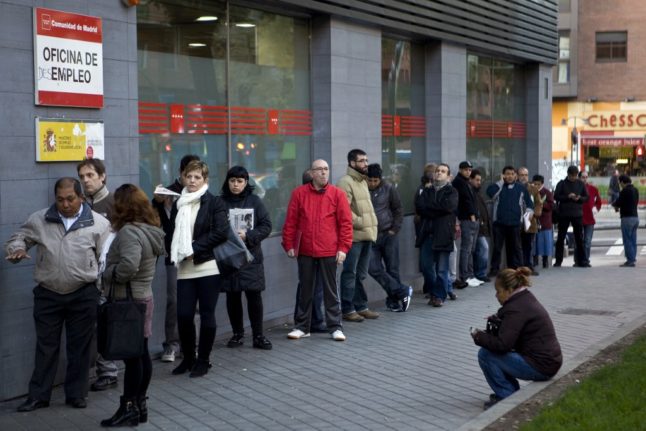The jobless rate inched up to 12.67 percent in the period from July to September from 12.48 percent in the previous three-month period, national statistics institute INE said in a statement. Youth unemployment now stands at 31 percent.
The number of unemployed people rose by 60,800 in the third quarter to a total of 2.98 million even though 70,000 jobs were created, with most jobs lost in services, including Spain’s key tourism sector, and agriculture.
The jobless rate was still lower than during the same period a year ago when it stood at 14.57 percent.
The number of job seekers in Spain fell below three million in May for the first time since November 2008 at the start of the global financial crisis.
The fall in joblessness was due to a rebound in Spain’s tourism sector following the end of most pandemic travel restrictions and a labour market reform which limits the back-to-back use of temporary contracts.
The number of permanent contracts in Spain in the third quarter rose by 444,200.
Among Western economies, Spain was one of the worst-hit by the economic fallout of the pandemic, with its gross domestic product collapsing by 10.8 percent in 2020, largely due to its heavy dependence on tourism.
Some half a million people lost their jobs in 2020 in Spain, which has one of the highest rates of unemployment in the Organisation for Economic Co-operation and Development.
The government predicts the jobless rate will drop to 12.2 percent at the end of 2023 despite a slowdown in the economy due to soaring inflation and the uncertainty caused by the war in Ukraine.
But many analysts are much more pessimistic. Investment bank ING predicted Spain’s unemployment rate will rise steadily to 14.3 percent in the third quarter of 2023.
It expects the Spanish economy, the eurozone’s fourth largest, will enter a mild recession in the fourth quarter of 2022 that will continue until the first quarter of next year.
“Business confidence has also deteriorated sharply in recent months, which will encourage companies to be more careful with new hires,” ING economist Wouter Thierie said in a research note.
The higher share of permanent contracts, however, will cause the rise in the jobless rate to “be less pronounced than during previous recessionary periods”, he added.



 Please whitelist us to continue reading.
Please whitelist us to continue reading.
Member comments